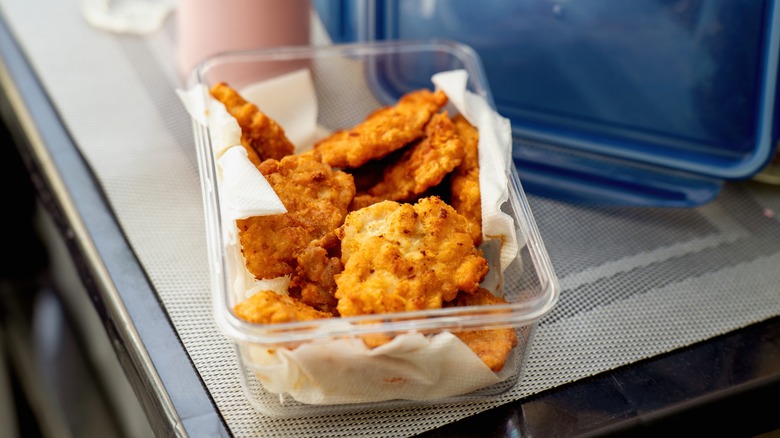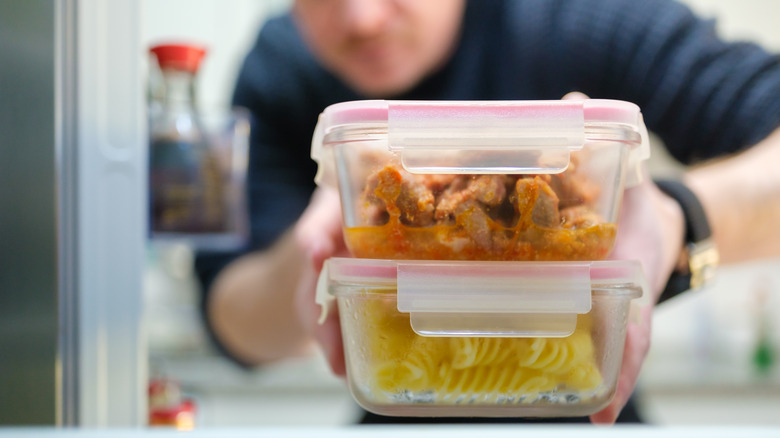How To Properly Store Chicken In The Fridge & Freezer, According To Tyson
Leftovers are like a gift from your past self: a delicious, ready-to-eat meal that saves time and effort. But when it comes to chicken, making food storage mistakes can turn that gift into a gamble. Fortunately, knowing a few simple storage tips can keep your chicken fresh, safe, and tasty for days, weeks or even months to come.
According to Tyson, one of the most prominent names in poultry, the best way to store cooked chicken is in small, air-tight containers placed in a fridge kept under 40 degrees Fahrenheit. Chicken pieces have about 48 hours before they need to be tossed out, while whole chickens extend that freshness to 72 hours. If you don't plan to eat it by then, freezing is a great backup. Properly stored cooked chicken will keep in the freezer for six to nine months — just be sure it is properly stored before its freeze-by date. For best results, wrap the chicken tightly in plastic wrap or place it in a sealed freezer bag, squeezing out as much as possible to avoid freezer burn.
As for raw chicken, the clock starts ticking once you bring it home. When stored in the refrigerator, it's best to use it within two days of purchase, or by the "best by" date (whichever comes first). Don't forget to keep it on the bottom shelf – the safest place to store raw chicken in the fridge — to avoid it possibly leaking onto and contaminating other food. If you're not ready to cook it, transfer it straight to the freezer to lock in freshness and reduce waste.
Common mistakes when storing chicken
There's more to storing chicken than just tossing it in a container and sticking it in the fridge. One of the biggest mistakes people make is putting cooked chicken away either too soon or too late. While there's debate about whether food should cool completely before refrigerating, food safety experts agree that cooked chicken can only be left out at room temperature for a maximum of two hours. Any longer, and you risk bacterial growth that can make your meal unsafe to eat.
But refrigerating chicken too soon — when it's still steaming hot — can also cause problems. The trapped heat creates condensation, which can make the chicken soggy or lead to ice crystals if frozen, damaging texture and flavor. The fix? Let the chicken cool slightly before storing — ideally until it's warm but no longer hot. Leave the lid slightly open to allow steam to escape, then seal the container once it has significantly cooled.
Another common mistake is skipping the step of labeling your leftovers — especially when storing chicken in the freezer, where it's easy to lose track of time. Avoid the guessing game by writing both the date the chicken was cooked and the date it was frozen on the storage bag (and be sure to indicate which is which). Another important rule of thumb is that once chicken has been thawed, it should not be refrozen (unless thawed in the fridge). Refreezing can significantly impact the texture and moisture of the meat, and may accelerate oxidation, leading to diminished flavor and quality.


